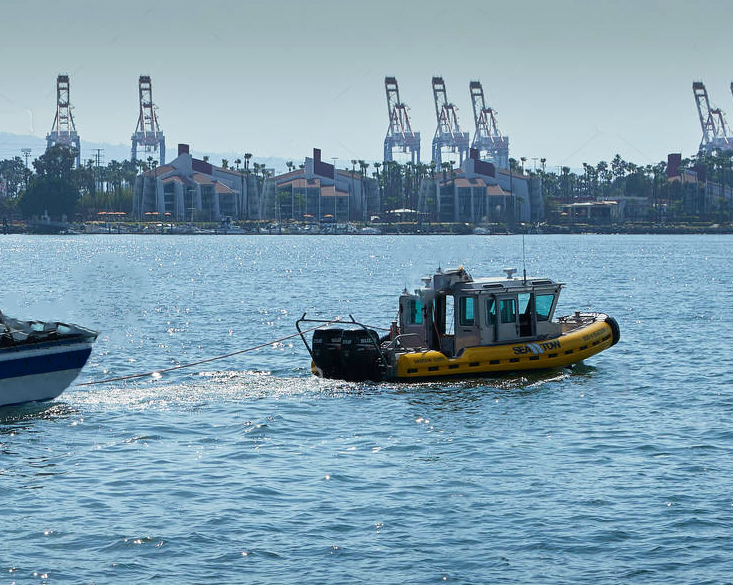
If your boat has lost propulsion or steerage and troubleshooting at anchor has failed to resolve the issue, your next step is to call SeaTow for a tow. Here is what you need to know to stay safe while under tow.
- Ensure that everyone aboard is wearing a PFD.
- Decline the assistance that any passing boats may offer, unless your vessel and/or crew are in imminent and severe danger, and only to get you to safer waters where you may securely wait for your SeaTow vessel to arrive. In the unlikely event that you are in such a situation, know the risks. Towing can be dangerous.
- One of the great advantages of the SeaTow service is the knowledge and experience of their captains and crews. They will also carry all of the equipment necessary to tow a wide variety of vessels. The SeaTow crew will supply lines and instruct you and your crew on how to tie up. In inland waters or over short distances, SeaTow will most likely raft up alongside your vessel. In open water or across longer distances, SeaTow will tie a bridle to your bow and tow your boat from their stern.
- While being towed from the bow, steer your boat by keeping your bow pointed at the stern of the vessel towing you.
- When tension on a line is suddenly released due to breakage, the line and anything attached to it becomes a dangerous projectile that can severely injure or even kill. Ensure that you and your crew stay off the deck and out of the "snap-back zone" while under tow. Be aware that a parted line will tend to snap backwards in a straight line, or travel in a sweeping arch if braced against a pivot point.
- MSC's Charter Policies strictly forbid towing or rafting up to other boats. But does this mean that if you see a vessel in distress, that you should pass them by?
- Federal Code 46-2304 mandates: "A master or individual in charge of a vessel shall render assistance to any individual found at sea in danger of being lost, so far as the master or individual in charge can do so without serious danger to the master or individual’s vessel or individuals on board." In other words, do not assist if you do not feel that you can do so safely.
- You may offer to call the US Coast Guard on VHF radio channel 16 if the disabled boat's radio has malfunctioned and/or stand by with the disabled vessel until help arrives.
- One day, you may find yourself aboard a non-MSC boat and come upon a vessel in distress. You will be faced with the decision to tow or not to tow. If you are not trained in towing safety and procedures, rendering assistance to a disabled vessel could likely result in damage or injury to boats and crew. Again, preparation is best practice. Read this article from Boats.com: Towing a Boat on the Water so that you are prepared.
Learn more about responding to emergency situations and safety under tow in ASA 106, Advanced Coastal Cruising. Questions about on-the-water safety? Call (415) 331-8250, email us, or stop by our office and ask to speak with one of our knowledgable captains.
Want to learn more seamanship and safety tips? Check out the Member Resources section of our website. New articles are added frequently!


